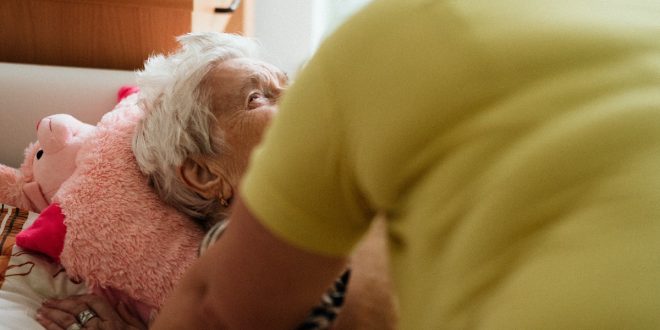As the end of any life approaches the final steps can be the most difficult for both those nearing death and the dedicated people who care for them. End-of-life care is a significant and sensitive endeavor, set apart by one-of-a-kind difficulties that require unflinching sympathy, understanding, and support for all. In this investigation, we shed light on the multi-layered difficulties of end-of-life care and examine the priceless role that carers play in giving comfort and dignity to those confronting the end of life and to those caring for them.
Caring for the emotional fallout at the end of life
The end of life can bring a tsunami of feelings for both the individual facing their end and the ones who love and care for them. The person facing their final days may feel a maelstrom of emotions including acceptance, reflection on their life, and perhaps even anger or a fear of the unknown. The people closest to them, who may be involved in their care, may also be wrestling with a complex mix of feelings such as guilt, grief, and fear and perhaps may be trying to repress these feelings as they come to terms with what is going to happen alongside the responsibility of providing support and comfort to the one who is dying.
In this emotionally challenging environment, the main caregivers can struggle to care for themselves and may feel guilty for thinking of themselves at such a time. Burnout and illness are a real danger at this time so it is essential that caregivers recognise that caring for themselves is not selfish. It’s necessary to enable them to fully care for their loved one as they near the end.
This is where respite carers who are trained to provide empathetic care and support, can offer a primary caregiver the time and space to gather themselves together, tend to their own health needs and recharge their batteries in order to face the challenges of what lies ahead in caring for the loved one.
Alleviating pain and physical difficulties
When someone has a life-limiting illness there are often physical complications such as fatigue and pain which require specialized care and management of medications and their side effects. The specialized expertise of a respite carer in collaboration with healthcare professionals can really help here. They will monitor, and adjust if necessary, any pain management plan. This type of palliative care can be an invaluable help and support to the person approaching the end of life whose physical needs may evolve, thus ensuring as much as possible a dignified, comfortable, and pain-free final days.
Spiritual support plays a part too
For many people, whether religious or not, the approaching end of days often prompts profound feelings of spiritual and existential contemplation. They may look back on their life and reflect on the things they’ve achieved and wonder about the things they could have done and perhaps didn’t. They may worry about the legacy they leave behind and whether they have left their affairs in order, or about how their loved ones are going to cope without them. Some may even struggle with the question of what’s to come if they believe in an afterlife.
A primary caregiver whilst struggling to care for their loved one’s physical needs may find it too much of a challenge to also answer these spiritual questions as much as they wish to bring comfort to their loved one.
Respite carers are often trained to provide spiritual and emotional support in a compassionate and empathetic way. They can enable the continuation of spiritual or religious practices or simply provide a listening ear or meaningful conversation. For many, this can provide meaningful acceptance, comfort and even joy in the final days.
The strain on family relationships
The physical, emotional, and financial difficulties involved in giving end-of-life care can strain even the closest of family bonds. There may be differences of opinion regarding care plans, treatment options, and decisions on what happens afterward. These can sometimes cause arguments which lead to lasting conflicts between family members.
Where respite carers can help by stepping in temporarily to allow the family to step away from the arguments and refocus on what is important, namely the loved one who needs their care. This can offer relief not for the main caregiver who may feel helpless in the middle of the conflict. It can but also allow the wider family to breathe, recalibrate, and concentrate on offering support. Long-term, it can ensure families stay together rather than tearing themselves apart.
Maintaining normal routines helps
Many people who know they are approaching the end of life will often say that what they miss the most is just doing and talking about ‘normal things’. This is why it’s essential to try as much as possible to keep a sense of normality and to not let the last weeks or days be overshadowed by the inevitable. Medications and medical interventions should be just a part of what is happening and not define the whole existence.
It can be difficult for primary caregivers to continue creating special moments and memories alongside caring duties. In this regard, respite carers can step in to fulfill a role in helping to maintain day to day routines in creative and positive ways. They do this by providing companionship and purpose or by enabling social activities or interactions to give the individual the chance to end their days as normally and as happily as possible.
Respite care – practicality, comfort and compassion
For primary caregivers navigating the delicate challenges of the final days of a loved one, respite care stands ready to provide professional help and compassionate support to them and their loved ones as the final journey begins.
The role of the respite carer is to ensure that through emotional support and physical care they provide a dignified end in the final moments and compassionate understanding for families. Respite care gives the primary caregiver room to care.
 The Care Up
The Care Up




